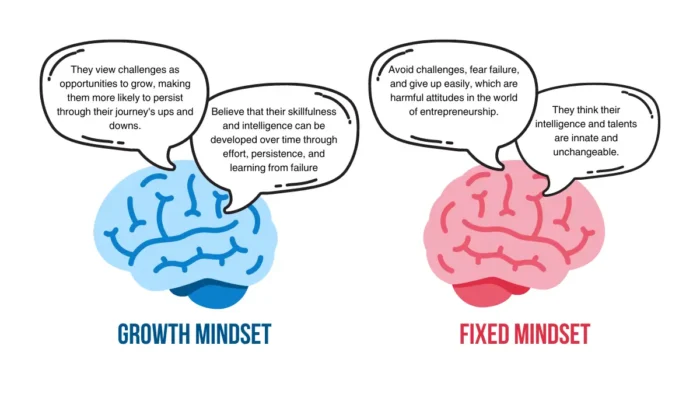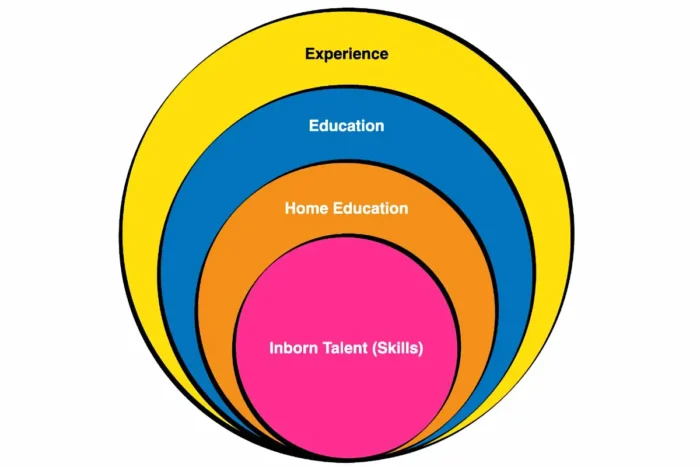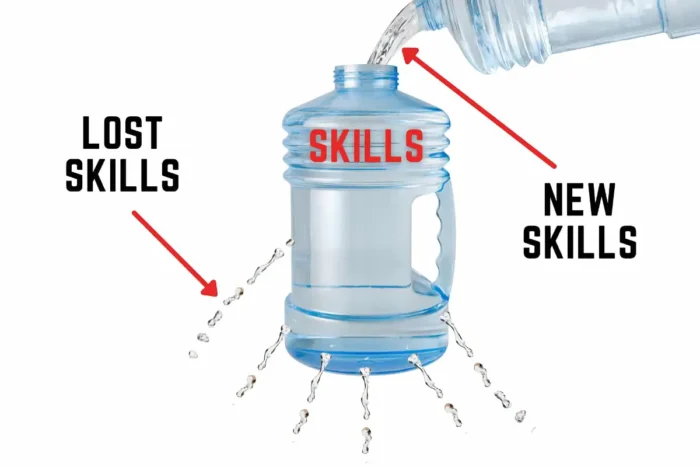In 2024, staying competitive means developing a new set of entrepreneurial skills—ones that were perhaps nice to have just a few years ago but are now essential.
Your own skills are the most influential business potential energy in you as an entrepreneur. What type of entrepreneurship skills will you need to build a great startup company?
You can either develop entrepreneurial skills and have them before you start your company, but you can also start your own business and develop these smart skills as you go. However, the quicker you build these smart skills, the faster they will inject more business potential energy into your company, guaranteeing your business success.
Here, I will cover the 17 most critical smart skills today to help entrepreneurs create and grow successful businesses.
How Can You Get Necessary Skills
Equipping yourself with entrepreneurship skills is the first step to increasing the business potential energy for your company.
How can you become an entrepreneur with as many skills as possible? We need to see how you can acquire any skills to answer this question.
Growth vs. Fixed Mindset and Their Impact on Entrepreneurial Skills

Before continuing with how you acquire the most important entrepreneurship skills, you must first understand the concepts of growth and fixed mindsets. These concepts, coined by psychologist Carol Dweck and explained in the book “Mindset” are vital for your entrepreneurial journey.
Individuals with a growth mindset believe that their skillfulness and intelligence can be developed over time through effort, persistence, and learning from failure. They view challenges as opportunities to grow, making them more likely to persist through their journey’s ups and downs.
Conversely, those with a fixed mindset perceive their capabilities as static. They think their intelligence and talents are innate and unchangeable. This mindset can lead them to avoid challenges, fear failure, and give up easily, which are harmful attitudes in the world of entrepreneurship.
So, a growth mindset fosters resilience, adaptability, and a relentless search for knowledge—essential for anyone looking to start and grow a business. It also encourages a culture of feedback and continuous improvement, which is critical for being a successful entrepreneur. On the other hand, a fixed mindset can slow down personal and business growth, limiting your entrepreneurial potential to innovate and scale your business.
Related: 10 Reasons Being An Entrepreneur Is Better Than Employment
You can become a more skilled person through:

Your inborn skills or talent.
Everyone is born with the potential talent for some skill. Some individuals can be good artists, and some can have excellent abilities in scientific learning.
For example, my two children are different. One is great at communication and has better soft skills. At the same time, the older one is better at hard skills or doing things focusing more on engineering sciences but with a lower level of skills to communicate.
So, we all have inborn skills, which are a starting point, the basis from which you can build any other skill set.
Home education.
Your native skills can be increased with your in-home education or behavior. Parents teach children the necessary skills to prepare them for adulthood. The society, culture, and way of doing things inside your family will also help you improve your own skills.
Educational system.
Through formal education, such as school and college, you get different skills that prepare you to become someone with specialized skills.
Also, you can learn using informal education through traditional and online courses, seminars, webinars, etc.
So, the educational system will impact your skillsets.
Experience.
These skills come from your earlier work, which you accumulated through experience. Every new day at work or in life is a different type of experience that increases your knowledge of something related to your previous experience.
Why Are You Losing Entrepreneurial Skills, and Must Always Improve and Update Them?
Old knowledge and methods quickly become obsolete. You must continuously learn, adapt, and update your entrepreneurial toolkit to keep growing.
As you can see, you can potentially increase your skills throughout your life. But are your skills, once acquired, always and forever important for you and your small business?

The state of losing entrepreneurial skills is logical because of the following things:
- The time frame of your entrepreneurial skills. All skills are designed for a specific time frame. What you know today may not be important tomorrow.
- Scientific progress. Science is developing so fast that it is not easy to follow today. Scientific research and discoveries impact the global trends in people’s and businesses’ lives.
- Development of new technology. With the development of science, new technology is fast developing. Production capacities are different now than they were 20-30 years ago.
- Competitors. Your competitors may follow trends about required skills, which can cause your skills to lose value and become obsolete.
As you can see, your entrepreneurial skills are a source of potential energy for business. However, they are not a source for a lifetime, and they can easily become undervalued and obsolete. Because of that, you must find different ways to fill the tank with water continuously.
What Skills Must You Possess to Be a Successful Entrepreneur?

Now, let’s look at the skills every entrepreneur should have to run their own business successfully.
1. Adaptability Skills
Adaptability means a fundamental openness to change, a key characteristic in an age when customer preferences, economic conditions, technology, and science can change everything around us. So, you must be able to adapt quickly by improving and updating your business model, changing strategies and plans, etc.
As an adaptable entrepreneur, you can discover trends before they become a reality and turn them into business opportunities. Those who are rigid or slow to change risk becoming obsolete in the new business world.
2. Data Literacy
Collecting and analyzing data is important for making informed decisions and running a successful business.
How can you plan your business’s future if you don’t know some important market trends to identify opportunities? Or, if you don’t conduct financial forecasting? How can you conduct market research if you don’t know how to collect, analyze, and extract market insights from the data? You need data if you want to make informed decisions.
The fact is that successful entrepreneurs must read data patterns fluently to make informed, calculated decisions. When you know how to use data and your analytical skills are higher, you will also improve your problem-solving skills.
3. Marketing Skills
Your company is nothing without customers. You sell to them and get money from them, and without customers, you will not have enough money to finance your normal business operations.
How can you find customers for your business, or how will your potential customers find your company?
You will need marketing skills to promote your products or services effectively and ensure that enough customers buy them.
There are plenty of marketing techniques to increase your company’s visibility. Here is how you can bring your marketing techniques to the 21st century.
4. Sales Skills
Your startup company cannot survive if you don’t sell something to your customers. You will probably have your own sales team tomorrow, but if you are in the startup stage, you must close as many sales as possible.
Because of that, you will need to have excellent sales skills to enable continuous cash flow and economic growth of your business.
5. Communication Skills
As an entrepreneur, you must communicate effectively daily with your customers, potential customers, employees, and suppliers. These entrepreneurial skills are part of your soft skills.
You must ensure the other side listens to you when discussing your company. If no one is listening, then why are you talking?
Because of that, you must also have strong communication skills for successful entrepreneurship.
6. Negotiation Skills
Everything in business depends on your negotiation skills. You’ll negotiate with your customers to make a deal, with your suppliers to make a deal in your favor, with your partner, and sometimes with the community where your company is located. So, you need to start developing your negotiation skills.
7. Networking Skills
Before you start your business, during startup, and after that, as long as your company is live, you must build your personal and business network. The better and more extensive your network, the more success you can provide for your company.
Remember that practicing entrepreneurship will require you to attend networking events, network with others, maintain relationships, engage in active listening, and more.
8. Managerial Skills
Whether you like it or not, you must always manage your company. You must set realistic goals, plan, recruit, motivate, control, and educate. Managerial skills are essential to your business’s success. You must have conceptual, human (interpersonal skills), and technical as basic skills. Also, you will need project management skills to manage many different projects throughout your company.
As a manager, you will have many tasks you need to do. Here are 11 management tasks that matter the most for your company.
9. Leadership Skills
As an entrepreneur, you’ll lead. Your employees will also do everything that you do in your company. If you add value to your activities, your employees will also add value to their actions. You’ll merge different people with different backgrounds, knowledge, skills, and experience in your business.
One of the most essential skills for entrepreneurs is leadership. You must be a good leader if you want to manage your startup or small business team.
Good leadership skills include many different skills, such as listening, communication, critical thinking, etc. There are many ways to be a good leader, and you’ll have to find a style that suits you.
Related: Team Leader Skills for Your Business Growth
10. Financial Literacy

You have a business that sells something in exchange for money. Therefore, you need specific knowledge of revenue, costs, profit, taxes, cash flow, break-even, and other related factors.
You must keep your business moving forward, and because of that, one of the most important things successful business owners do is ensure enough funds to finance their small businesses.
11. Self-Management Skills
Too many activities and tasks requiring engagement will make your day look chaotic. You must know how to manage yourself, prioritize tasks, manage time, and motivate yourself.

When you wake up in the morning, you must have a clear plan for today’s tasks. Use this plan to improve your time management skills if you want to become a high achiever.
Related: Time Management Tips to Succeed as an Entrepreneur
Many people become entrepreneurs because they get to be their own boss. That means time management is required to be an entrepreneur.
You don’t have a boss who will tell you what you must do today, and your wife can’t tell you anything about today’s tasks in your own company.
Procrastination in your company is dangerous. Because of that, you’ll need self-motivational skills that will enable you to know when to start something without delay and when to stop.
Use the following five techniques to beat procrastination and win on your entrepreneurial journey.
12. Emotional Intelligence
What separates a good entrepreneur from a great one is often their ability to empathize and connect. Emotional intelligence encourages an environment where employees feel heard and valued, improving engagement and productivity.
With these capabilities, you can easily resolve conflicts, lead with empathy and compassion, predict and manage how your team, investors, and market will respond to your business decisions, and more.
13. Critical and Creative Thinking Skills

Critical thinking is one of the skills every entrepreneur should possess. These skills involve analyzing problems and finding opportunities from totally new perspectives, generating still unexplored ideas, and finding unique solutions. They involve thinking outside the box for problem-solving and challenging the status quo to drive progress and create value.
Conversely, creative thinking skills allow you to generate innovative and unconventional solutions to problems, identify opportunities, and generate ideas for process improvements in your business. Entrepreneurs with creative thinking skills excel in ideation. They generate many ideas, filter them, and identify those with the potential to disrupt markets or create entirely new ones.
14. Strategic Thinking Skills
Another one of the most important skills for an entrepreneur is the ability to think strategically.
The outcome of your strategic thinking process will be your business strategy, which will design your path to achieve your goals. So, Having effective strategies in place will help you achieve your business vision.
15. Tech Savviness
Entrepreneurs who understand, accept technology, and always follow technological trends are closer to success today.
Maybe technology was not so important for some businesses in the past, but today, when all potential customers use technology to find and purchase things, technology savviness becomes a must for everyone. So, a baseline familiarity with technology is non-negotiable for success in today’s business landscape.
16. Resilience and Perseverance
Successful entrepreneurs do not avoid failure—they confront it head-on and learn from it. They are not afraid but overcome challenges on their path. Resilience is the art and skill of bouncing back and growing from one’s failures.
Resilience allows you to maintain calm in difficult times. Entrepreneurs facing an economic downturn didn’t just downsize; they strengthened their R&D efforts to pioneer a cost-effective product line aligned with new market demands, distinguishing them as industry leaders during bad times.
Entrepreneurs can sometimes be let down, have to work overtime or feel burnt out. That’s why perseverance is also one of the most important skills for becoming an entrepreneur.
If you’re not determined to have your business succeed, you’re probably not cut out for the entrepreneur’s life.
17. Risk-Taking
Risk is closely related to all entrepreneurs. Success will not be achieved without risk-taking. However, what is important is your risk tolerance and whether you know how to manage the risk around your company correctly.
Entrepreneurs can take risks and either see themselves fail or succeed. From there, they will know they must work harder on their next move.
How You Can Improve Your Entrepreneurship Skills
Improving your entrepreneurial skills is a dynamic and ongoing process, and there are several ways to ensure you’re always improving and growing.
- Continuous learning. You can foster your growth mindset through lifelong learning, such as online classes and workshops, webinars and seminars, courses in the field of your choice, or even an executive MBA (Masters in Business Administration). Equip yourself with proper knowledge in the area you plan to work in and build on that.
- Learn from your own business failures. Also, do not be afraid to fail. Many successful entrepreneurs have failed numerous times before making it big. If you do not taste defeat, you will never know what winning is like. Sometimes, failing can make you a much better entrepreneur and a better person overall. It can help you think through where things went wrong and what to do differently next time. Do not get discouraged if you fail; bounce back with another plan and start working on it.
- Networking. Surround yourself with a diverse network of people and mentors. These relationships can provide invaluable insights and support, helping you to see around corners and avoid pitfalls.
- Personal projects. Start small personal or side projects that require hands-on experience with new skills. This low-risk experimentation improves your abilities and may even grow into profitable ventures.





